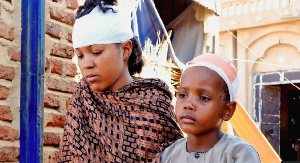It is important to remember that if one does not remember where s/he came from, s/he does not know where s/he is going.
Abena Kwatemaa Offeh-Gyimah
It is striking to discover how many Ghanaian children in North America are embarrassed about their culture and identity. It is even more striking that these children feel ashamed to tell their colleagues about their background. It is sad, pathetic and heartbreaking. It baffles me that Ghanaians who have come a long way from their country through hardships, and unspeakable circumstances are embarrassed to embrace their culture in North America.
I am aware that some people may easily get offended, upset or embarrassed when asked about their culture because it can result in people drawing negatives views. However, if you find it shameful to tell others about your background in front of friends, family and work colleagues then you have a lot of soul searching to do. This demonstrates that you do not understand your culture or are truly ashamed of what you are. People forget that, no matter where they go, whether they embrace their culture or not, they cannot change their true identity.
It is important to embrace where you came from. Communication between people from different cultural backgrounds helps people to understand human nature better. It can also help people to understand why others act a certain way or hold certain values so highly. In short, talking about your culture gives a better understanding of individuals. This then means that people should embrace their culture to the fullest. However, embracing your culture is not merely about food and language, but also educating others about the way things are done in your culture.
Further, things are done differently in different cultures. An example that my father mostly uses to illustrate this point is a comparison between Ghanaian and Western Societies. For instance, when a child is speaking to an adult back home, it is considered rude for the child to look straight in the eyes of the adults. It is better for the child to look down or away as a sign of respect. However, in Western societies, it is crucial, if not important to look in each other’s eyes when talking. This is said to be a strong sign of communication, which indicates that one is listening. There are so many differences in cultures, because different cultures have their own special set of protocols which compliment culture and help them understand each other. Why then the embarrassment?
Some Ghanaian children are embarrassed of being called a Ghanaian because they do not know their culture and are not willing to understand it. The worst part is that, they have not made any effort to even try to learn about their own culture. Of course, Western culture has taught us a lot, and helped us move forward in many ways; but not every aspect of that culture should be embraced by throwing ours away. It is important to remember that if one does not remember where s/he came from, s/he does not know where s/he is going. If you embrace being a Ghanaian then it makes it easier for others around you to embrace it too because they notice how important it is to you. It even gives others the opportunity to observe the behavior, morals and values of your culture.
Further, I urge the Ghanaian parents to help their children develop positive views about Ghana. Parents must not use Ghana to threaten their children when they do something wrong or unacceptable. It is sad that so many Ghanaian children have terrible views about Ghana, their homeland. It is even sad that they are willing to give up their Ghanaian heritage for a Canadian one. Whether one is a Canadian citizen or not, they should remember that the citizenship does not change ones original identity as a Ghanaian, Asian, etc. And like everyone else, someday they will struggle to learn about their roots. And hopefully it will not be too late then.
I want Ghanaian children to understand that customs and protocols from different cultures vary from place to place. It is imperative to have awareness of different cultures, thus, when someone ask you about your culture, feel free to speak about it. I know that there are differences in culture, which can be a stumbling block in our everyday lives. At times we feel that revealing where we come from or embracing our home-country’s culture can hinder us from working together or developing stronger relationships with others However, it is also important to note that speaking about your culture can bring you much closer to others than you think. Embracing that you are a Ghanaian can reveal some honesty and transparency in your life. Culture starts from inside you before it comes out. If you embrace the fact that you are a Ghanaian, then the people who are true to you will embrace it too but if you are shameful of your own culture then others around you will also be shameful of your culture too.
Opinions of Monday, 10 August 2009
Columnist: Offeh-Gyimah, Abena Kwatemaa














